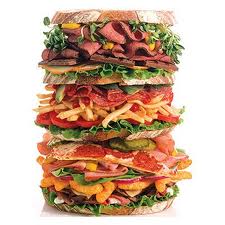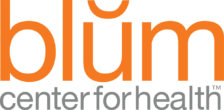Cholesterol lowering medication is the #1 selling prescription medication in this country. Somehow, everyone has
ended up on these drugs. While I am not anti-medication, I believe there should be a discussion that weighs the cholesterol lowering medication
risks and benefits to see if each prescription is right for you. It shouldn’t be an automatic reflex with no review of alternatives to taking a statin, for example. This is our focus today, and also the topic of my free monthly talk at Blum Center for Health on February 27.
Myth #1: Lowering my cholesterol will lower my risk of heart disease and death.
 While this may be true for some of you, for most, the studies don’t prove this. People are put into risk categories, and for the highest risk people, getting your cholesterol down to a very low number and quickly, might be the right answer. But who is at high risk? Certainly not women after menopause who naturally have a rising cholesterol level—they all don’t need a statin. There are a lot of side effects from statins including impaired memory, which is a concern for many people as they age. Studies are now emerging that show that post-menopausal women without a personal or strong family history of cardiovascular disease are in the low risk zone.
While this may be true for some of you, for most, the studies don’t prove this. People are put into risk categories, and for the highest risk people, getting your cholesterol down to a very low number and quickly, might be the right answer. But who is at high risk? Certainly not women after menopause who naturally have a rising cholesterol level—they all don’t need a statin. There are a lot of side effects from statins including impaired memory, which is a concern for many people as they age. Studies are now emerging that show that post-menopausal women without a personal or strong family history of cardiovascular disease are in the low risk zone.
So who is in the high-risk zone? Anyone who has diabetes or knows they have atherosclerosis or plaque because they had a test from a cardiologist; if one of your parents had a heart attack or stroke when they were in their 50’s or younger; and finally, you need to have the advanced cholesterol test—the NMR Lipoprotein Analysis—to look at the size and shape of your cholesterol before it is deemed too high or a problem and before deciding if you are in the high risk zone. The routine numbers done in a basic lipid panel don’t tell the whole story.
Myth #2: Treat the number, it’s all that matters.
Wrong. Just getting your numbers down isn’t good enough to prevent heart disease. We need to make sure your cholesterol isn’t damaged from free radicals because that’s what makes them sticky and form plaque. This happens cholesterol if your body is inflamed or deficient in antioxidants. We need to look at this and treat it, no matter what your cholesterol numbers are. Mary will focus on this in the nutrition section below.
Myth #3: The only way to lower cholesterol is with medication.
 Wrong again. First, think about WHY cholesterol goes up? There are some people who have genetically high cholesterol, but they are the minority. For most people it is about lifestyle. Since cholesterol is used as a raw material to make the stress hormone cortisol, too much ongoing stress will prompt the liver to make more cholesterol to
Wrong again. First, think about WHY cholesterol goes up? There are some people who have genetically high cholesterol, but they are the minority. For most people it is about lifestyle. Since cholesterol is used as a raw material to make the stress hormone cortisol, too much ongoing stress will prompt the liver to make more cholesterol to
support your hormones. Elizabeth will talk more about the stress-cholesterol relationship and what to do about it. The other big cause is the foods you are eating. A diet filled with processed flour, sugar, saturated fat, and lots of animal foods like dairy will increase cholesterol. Fixing your food by eating a plant based diet filled with fiber, plant sterols, and essential fatty acids is the best way to lower cholesterol and get the antioxidants needed to keep the cholesterol you do have from getting sticky and making plaque. Of course, taking fiber, fish oil, and plant sterol supplements will help, but nothing works better than actually changing the food you eat.
Myth #4: If I take medication, I can eat whatever I want!
 This idea can really get you into trouble. Studies have shown that people who take statins are at an increased risk of diabetes. You can’t keep eating all those processed sugar and flour products while your medication keeps your cholesterol down. This false sense of security will make you sick and increase your risk of heart disease.
This idea can really get you into trouble. Studies have shown that people who take statins are at an increased risk of diabetes. You can’t keep eating all those processed sugar and flour products while your medication keeps your cholesterol down. This false sense of security will make you sick and increase your risk of heart disease.
The bottom line:
First, get a good risk assessment before you decide to just treat the number. And then work on making a few of the changes below to lower your cholesterol with lifestyle change.
